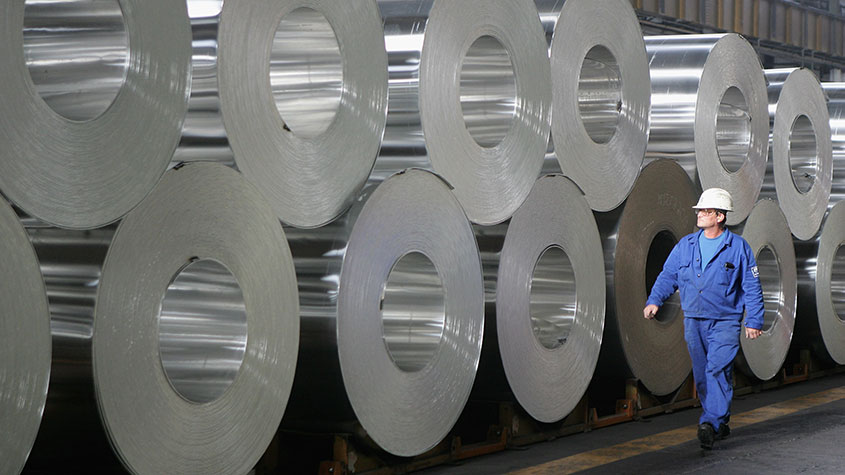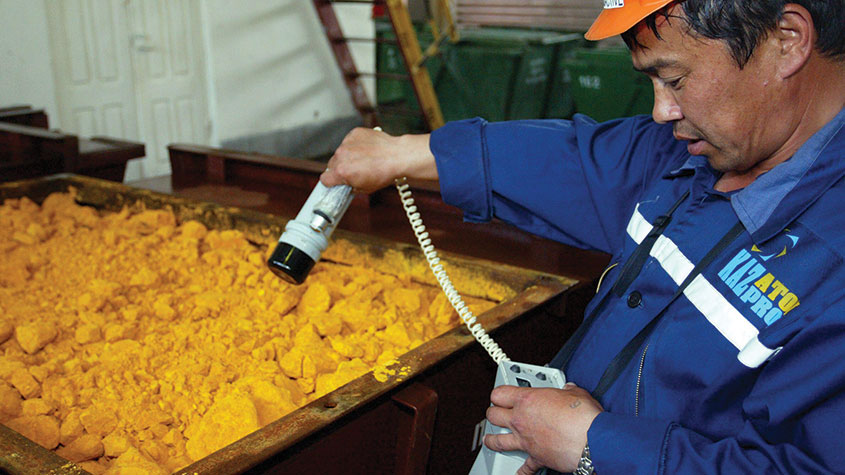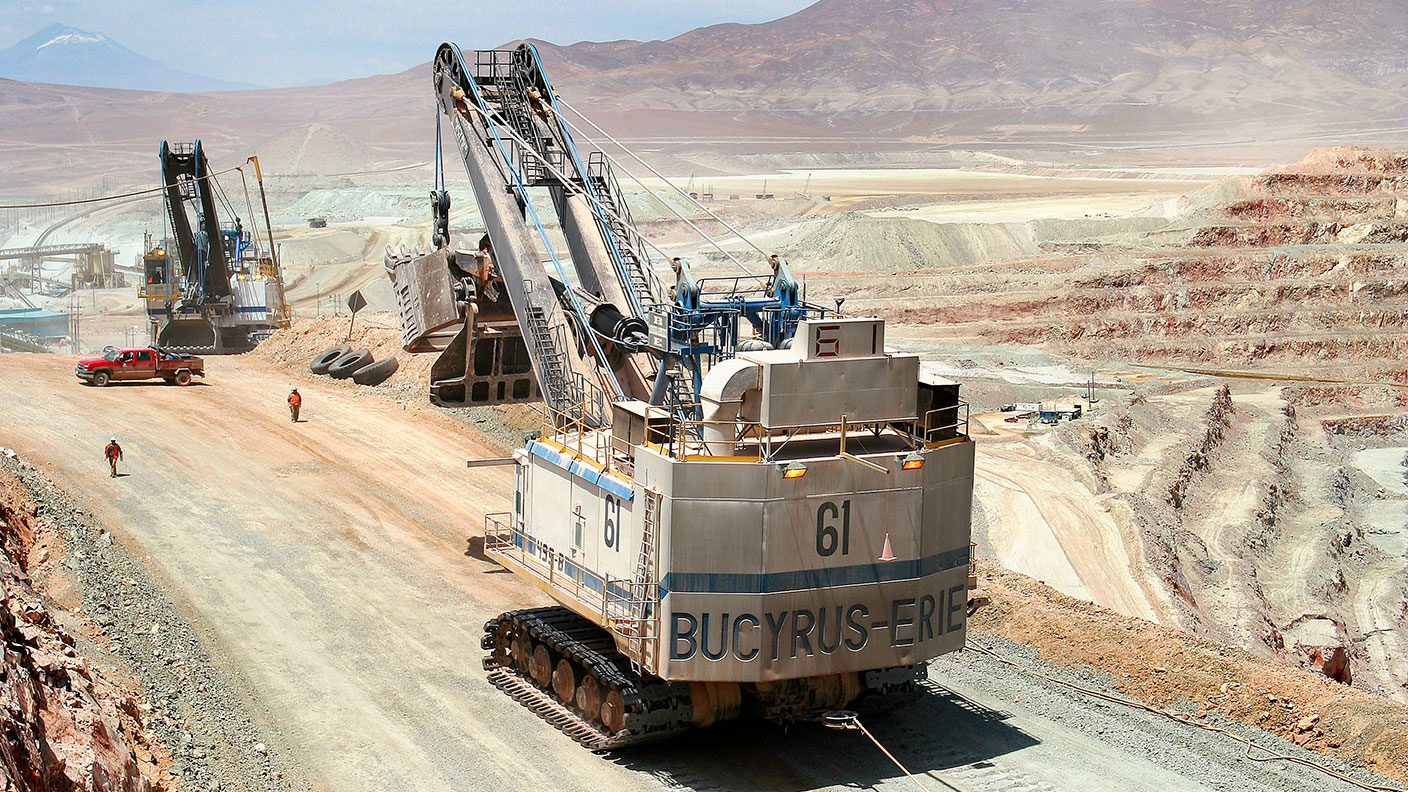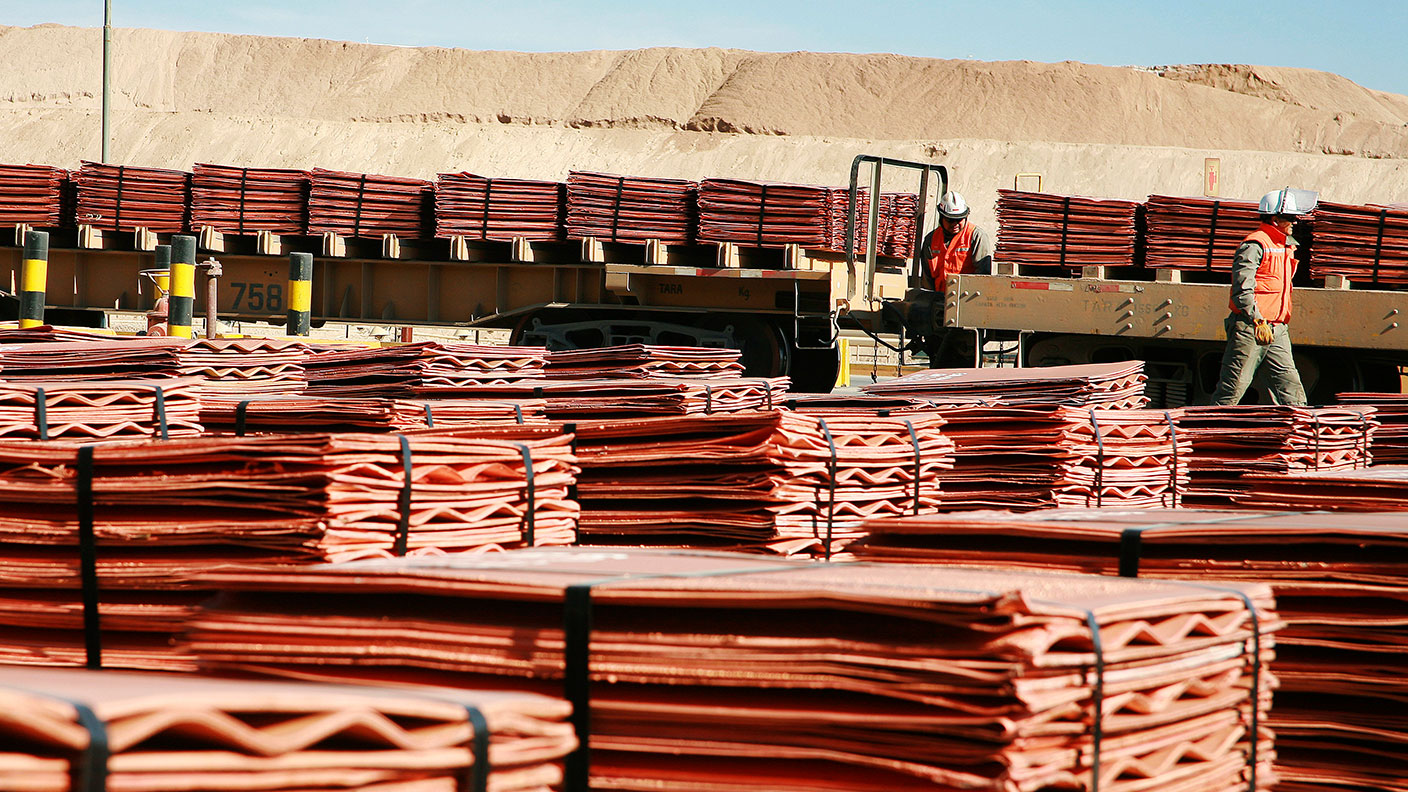Charles Heenan: patience pays for value investors
The secret of success? Stick to what works, buy cheap, hold out for quality and – above all – bide your time, Charles Heenan tells Merryn Somerset Webb.

Get the latest financial news, insights and expert analysis from our award-winning MoneyWeek team, to help you understand what really matters when it comes to your finances.
You are now subscribed
Your newsletter sign-up was successful
Want to add more newsletters?

Twice daily
MoneyWeek
Get the latest financial news, insights and expert analysis from our award-winning MoneyWeek team, to help you understand what really matters when it comes to your finances.

Four times a week
Look After My Bills
Sign up to our free money-saving newsletter, filled with the latest news and expert advice to help you find the best tips and deals for managing your bills. Start saving today!

I first mentioned Charles Heenan and his new firm Kennox Asset Management in print back in January 2011. At the time his fund the Kennox Strategic Value Fund was tiny and his record short. But my interest had been caught by the fact that his seed investors included the rather wonderful Angus Tulloch of First State, alongside several other very good investors. His performance record over his first few years on the job wasn't bad either.
We should take note, I said. Heenan was holding the things we should all be holding "solid companies at reasonable prices" and working on the very sensible principle that "if you can protect your capital when the markets fall, longer-term performance over the cycle will be good even if you give some ground up when the markets run".
I hope some readers did take note. The last couple of years were dull ones for value funds, but look at the longer term and his fund is doing well. The annualised return since inception is 9.4% (it was up 30% to the end of September this year) and it isn't particularly small any more (it has around £200m under management). So what's going right?
MoneyWeek
Subscribe to MoneyWeek today and get your first six magazine issues absolutely FREE

Sign up to Money Morning
Don't miss the latest investment and personal finances news, market analysis, plus money-saving tips with our free twice-daily newsletter
Don't miss the latest investment and personal finances news, market analysis, plus money-saving tips with our free twice-daily newsletter
The key, he says, is to stick to what works. "We are value investors... that means price matters... we really do believe that if you pay too much for an asset, it's a huge risk." He believes in quality and won't buy low-grade companies just because they are cheap. Doesn't that make finding things to buy in markets such as ours hard, I ask. It does.
"We have 29 stocks and the turnover is about 15%, which means we buy one to two stocks a year. In the last year, I'm afraid to say, we haven't bought a single stock. So it doesn't happen often. You have to be patient. We're firm believers that it's one of the hardest things to do... to wait for the great opportunities there".
I agree: too many managers feel a need to justify their position by trading even if they have to do so in the wrong stock or at the wrong price. Not Kennox: half the stocks in the fund now were in it in 2007. The ability to be inactive with confidence is often the thing that sets the good managers apart. That confidence was much needed in 2014/2015 when value stocks were very, very out of favour: anything cheap and anything with problems was ignored.
A great example, says Heenan was (and is) Neopost, a smallish company that makes franking machines. Overall post might be declining, but parcels are growing and Neopost has 800,000 customers.Its earnings were under some pressure, but still "it's a lovely little business". Heenan bought shares in it on ten-times earnings: "there are not many quality companies out there with ten-times earnings".
Okay, a quality company on a price-to-earnings (p/e) ratio of ten is good value. How expensive does it have to get before it isn't a value stock? Heenan will buy quality companies on up to 12 times what he considers to be their sustainable level of earnings (which implies returns in the high single digits), but "we find it very hard to hold anything over 20. So in the high teens, we get nervous". Johnson & Johnson was an example: Kennox held it in 2008/2009, but as its price rose from 11-times earnings to 18 times, they started to sell: "at some point, you say, Actually, now, we just think it's time to go'".
This is hard: it is very easy to hang on to good performers just because they are going up. "We struggle with that," he says. You have to sell when things get expensive, but not too early or to have a high turnover. Remember that industrial cycles last seven years and firms in infrastructure or oil will be making 40-year investments. "Market trends last longer than you think."
We move on to the markets. At the MoneyWeek conference last week I introduced our speakers as either optimists or pessimists. Had Charles been there, he would have been the latter. "I am," he says, "a permanent bear. I'm always pessimistic. I'm always convinced the world is going to end".
But "I use my pessimism as a tool" to make sure that the bar for buying with a margin of safety is high. "If you can build a portfolio that you think can hold up, irrespective of what bad things happen, you've done extraordinarily well. That's what equity investment is about. So if we can get them at reasonable valuations, imply good numbers, and we think that we have a real spread of businesses and diversification in underlying themes in the portfolio, then that is extraordinarily powerful".
So what is today's pessimism based on? "History which tells us that bad things happen." More specifically? "President Trump, for a start. An oil shock, again. Saudi Arabia, the Middle East, is disintegrating. Banking crises Deutsche Bank going out of business And then there's the elephant in the room, of course, which is what are central banks doing?" There are no safe havens: everyone has to assume that at some point in the next five to ten years "their wealth will drop by 20%". The good news is that buying stocks is inherently optimistic: "you're buying an unlimited-duration asset".
I grasp at this bit of optimism and we move on to the current portfolio. What's in it? The biggest holding (around 7% of the portfolio) will be familiar to MoneyWeek readers: it is gold miner Newmont Mining (NYSE: NEM). It has had a fabulous run this year and Heenan has sold some of the stake, but the rest stays. Gold is all about supply now. Most industries are "swimming in oversupply", yet almost no capacity is being taken off the market.
Not so in gold. Here the supply is coming off it started to shrink in the fourth quarter of 2015 and "what has been a headwind turned into a tailwind... one of the very few in the world". That makes it worth holding Newmont and one smaller riskier miner too, Canada listed Yamana Gold (Toronto: YRI).
Can he see that capital cycle turning elsewhere in the mining sector? "We think it's too early still." Oil? Getting there. Supply is coming off: "we've seen estimates of up to two trillion dollars of projects being cancelled... and while we don't know when that's going to affect the oil price, we do know that BP, Shell and the Exxons of this world will be around to see it". These aren't short-term buys,but "on a five-year and a ten-year view, we'restill convinced that those guys will survive".
What about banking and technology? Would Kennox hold those? No. The problem with technology is that it is impossible to see what the sustainable long-term earnings are or aren't: "my guess is there's going to be another product that we like better in ten years' time than we like Apple. The same way it was Nokia and before that it was Motorola". And banks? "We'll never own banks.At one point in the cycle, they're bust... and we don't want to have to predict when".
We talk a little more about the right ones. He loves Western Union (NYSE: WU) on about 11-times earnings. There is "technology risk" to the cash remittance business, but "it generates brilliant cash flow". There is Taisho Pharmaceuticals (Tokyo: 4581), which is in every part of the market for Japanese health and its shares are benefiting from the ongoing improvements in corporate governance in Japan.
The same goes for his other holdings in Japan: "three years ago, all our stocks were half of what they are now we've been trimming them, bringing them back as they run and run". Does he have faith that corporate governance in Japan really is improving? "We hope so. But we don't need to bet on it. We're very happy with what we've got."
If he had to hold just one for ten years, what would it be? We agree it's a stupid question. But he plays the game and goes for Newmont. "The world is crazy right now. And to have something that is properly diversified in the form of a reserve of gold sitting in the ground" is attractive. "We're pretty happy that it's still the place to be."
Fact file: Charles Heenan

Charles Heenan has 20 years experience in globalinvesting. In 1997 he joined Stewart Ivory (laterFirst State), where he spent seven years workingwith another MoneyWeek favourite fund manager,Angus Tulloch, and specialised in Asian emergingmarkets.
In 2007 he was one of the founders ofEdinburgh-based Kennox Asset Management and,together with Geoff Legg, has managed the KennoxStrategic Value Fund since its inception. The fund'smain aim is to preserve capital over the long term.
Get the latest financial news, insights and expert analysis from our award-winning MoneyWeek team, to help you understand what really matters when it comes to your finances.

-
 Early signs of the AI apocalypse?
Early signs of the AI apocalypse?Uncertainty is rife as investors question what the impact of AI will be.
-
 Reach for the stars to boost Britain's space industry
Reach for the stars to boost Britain's space industryopinion We can’t afford to neglect Britain's space industry. Unfortunately, the government is taking completely the wrong approach, says Matthew Lynn
-
 These 2 stocks are set to soar
These 2 stocks are set to soarTips The returns from these two aluminium and tin stocks could be spectacular when the commodity cycle turns says David J Stevenson.
-
 The best ways to buy strategic metals
The best ways to buy strategic metalsTips Weaker prices for strategic metals in the alternative-energy sector are an investment opportunity, says David Stevenson. Here, he picks some of the best ways to buy in.
-
 House prices to crash? Your house may still be making you money, but not for much longer
House prices to crash? Your house may still be making you money, but not for much longerOpinion If you’re relying on your property to fund your pension, you may have to think again. But, says Merryn Somerset Webb, if house prices start to fall there may be a silver lining.
-
 A lesson for investors from a ill-fated silver mine
A lesson for investors from a ill-fated silver mineAnalysis Mining methods may have changed since the industry’s early days, but the business hasn’t – digging ore from the ground and selling it at a profit. The trouble is, says Dominic Frisby, the scams haven't changed either.
-
 Prepare your portfolio for recession
Prepare your portfolio for recessionOpinion A recession is looking increasingly likely. Add in a bear market and soaring inflation, and things are going to get very complicated for investors, says Merryn Somerset Webb.
-
 The natural resources industry is in a tight spot – which is bad news for the rest of us
The natural resources industry is in a tight spot – which is bad news for the rest of usOpinion The natural resources industry is in a bind. We need it to produce more energy and metals, but it has been starved of investment, plagued by supply chain issues, and hobbled by red tape. That’s bad news for everyone, says Dominic Frisby.
-
 Investing for income? Here are six investment trusts to buy now
Investing for income? Here are six investment trusts to buy nowOpinion For many savers and investors, income is getting hard to find. But it's not impossible to find, says Merryn Somerset Webb. Here, she picks six investment trusts that are currently yielding more than 4%.
-
 How to invest in the copper boom
How to invest in the copper boomTips The price of copper has slipped recently. But that’s temporary – the long-term outlook is very bullish, says Dominic Frisby. Here, he explains the best ways to invest in copper.